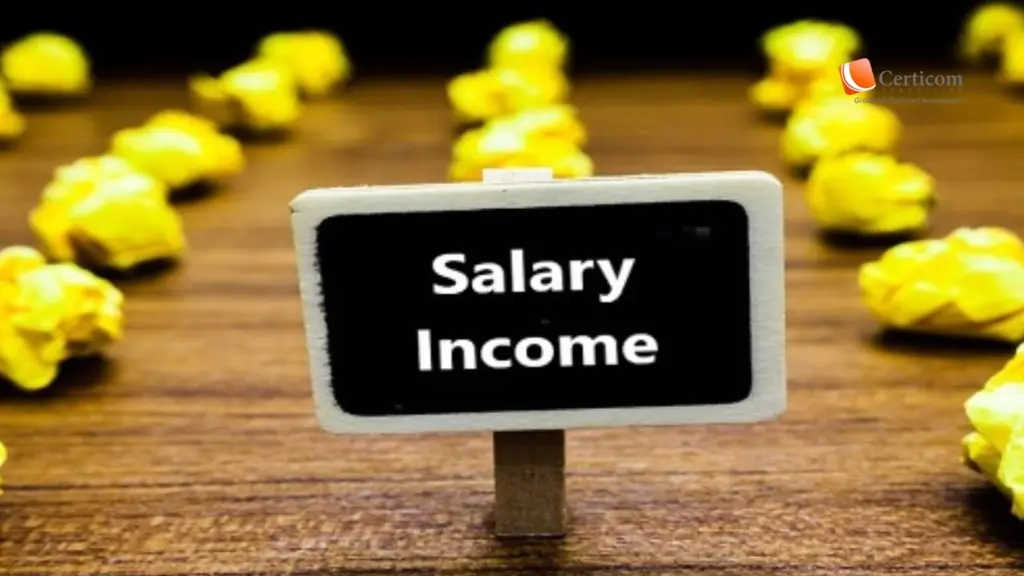HOW TO SAVE INCOME TAX ON SALARY?

Tax planning for the salaried employees is a matter of planning and discipline. There are certain questions in the mind of every salaried employee like How to save tax on my salary? Why major portion of my salary goes into taxes? How can I reduce tax burden? Can I save tax beyond 80C, 80D & HRA? Any hidden way to save tax after 1,50,000? How can I pay less tax on my salary? Can we change salary structure to reduce tax on salary? Any tax rebate for paying EMIs? Many employees would be aware about tax saving through HRA exemption for rent payment, LIC premium, ULIP, PPF, NSC, Tax Saving FDs, ELSS, Medical premium, Tuition fees of children, donations u/s.80G etc.
1. Opt for Tax Regime wisely (Old v/s. New Regime)
Before you start investing funds in tax planning, think once “Old v/s. New Tax Regime: Which Tax Regime is better for me?” The government brought the New Regime to simplify taxes. New regime answers the doubt of many employees i.e. How to save tax without investment? For many, it’s cumbersome to claim deductions and exemptions and maintain records. With the New Tax Regime, you don’t have to worry about deductions, make tax-saving investments and think of ways to optimize your salary to lower your tax outgo

3. Save tax through National Pension Scheme (NPS)
Tax Benefit available to Individual
Any individual who is Subscriber of NPS can claim tax benefit under Sec 80 CCD (1) with in the overall ceiling of Rs. 50 lakh under Sec 80 CCE.
Exclusive Tax Benefit to all NPS Subscribers u/s 80CCD (1B)
An additional deduction for investment up to 50,000 in NPS (Tier I account) is available exclusively to NPS subscribers under subsection 80CCD (1B). This is over and above the deduction of Rs. 1.50 lakh available under section 80C of Income Tax Act. 1961.
Tax Benefit to employee of Corporate Sector
Additional Tax Benefit is available to Subscribers under Corporate Sector, u/s 80CCD (2) of Income Tax Act. Employer’s NPS contribution (for the benefit of employee) up to 10% of salary (Basic + DA), is deductible from taxable income, up-to 50 Lakh.
4. Save tax for Equated Monthly Installment (EMIs) paid
Yes, you can save tax for EMIs paid by you as well. Following are the tax benefits available
Housing Loan:
Under the provisions of the Income Tax Act of 1961, the government offers a number of house loan tax exemptions and deductions to encourage residents to make investments in property. All home loan borrowers should note and be aware of all the income tax rebates available on home loans, because doing so can enable you to significantly reduce your tax obligation.
1. Under Section 24- Home loan borrower who pays interest on the loan may deduct that interest from gross annual income up to a maximum of Rs 2 lakh
2. Under Section 80C- The principal amount of a home loan can be deducted up to Rs 1.50 lakh under section 80C.
3. Under Section 80EEA- Under the objective “Housing for all”, the government extended the interest deduction of Rs 1.50 lakh allowed for low-cost housing loans taken during the period between 1 April 2019 and 31 March 2022. This deduction is available under Section 80EEA of the Income Tax Act and is in addition to the existing tax benefits available under Section 80C and Section 24

4. Save tax for Equated Monthly Installment (EMIs) paid
Electric Vehicle (EV) Loan:
Section 80EEB of the Income Tax Act allows you to claim tax savings of up to Rs 1.5 lakh on interest paid on a loan made specifically to purchase an electric car. However, certain restrictions and conditions concerning the loan issuer and the electric vehicle must be followed in order to claim the 80EEB deduction.
Read More: ITR: Types of TDS certificates and why they are needed
Education Loan:
Section 80E provides a tax deduction on the “interest component” paid on a loan taken for higher education by an individual assessee or on behalf of their spouse or children. There is no maximum or minimum deduction limit specified under section 80E.
Related Post
Tax Implications of ESOPs and RSUs for Employees
ITR Filing Deadline Extended: New Last Date is September 15
Book A One To One Consultation Now For FREE
How can we help? *




